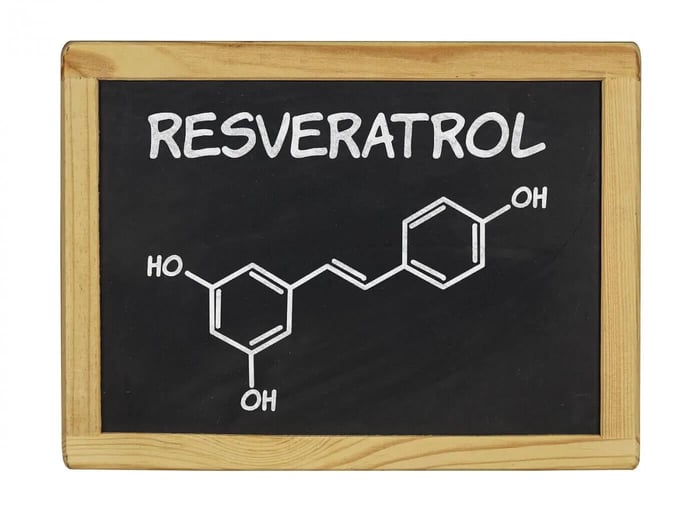Telomeres: The Revolutionary Key to Understanding and Managing Muscular Dystrophy
Telomeres are emerging as a groundbreaking factor in understanding muscular dystrophy, particularly Duchenne muscular dystrophy (DMD). Recent scientific discoveries reveal that telomere length plays a crucial role in determining the severity of cardiac complications in DMD patients. This comprehensive guide explores how telomeres influence muscle health, cardiovascular function, and potential therapeutic approaches for this challenging condition.
What Are Telomeres and Why Do They Matter for Muscle Health?
Telomeres are protective caps at the ends of chromosomes that safeguard our genetic material during cell division. Think of them as the plastic tips on shoelaces that prevent fraying. In muscle cells, particularly heart muscle cells, telomere length directly impacts cellular resilience and regenerative capacity. When telomeres become critically short, cells lose their ability to divide and repair tissue damage effectively.
For individuals with muscular dystrophy, understanding telomeres opens new doors of hope. These microscopic structures influence how muscle cells respond to stress, repair damage, and maintain function over time. The relationship between telomeres and muscular dystrophy represents a paradigm shift in how we approach this condition.
The Telomere Connection to Duchenne Muscular Dystrophy
Duchenne muscular dystrophy affects approximately one in every 3,500 male births worldwide, making it the most common childhood-onset muscular dystrophy. The condition results from mutations in the dystrophin gene, which produces a protein essential for muscle structure and function. Without functional dystrophin, muscle fibers become fragile and progressively deteriorate.
While early symptoms typically appear in the calf muscles and lower limbs, the most life-threatening complications involve the heart and respiratory muscles. This is where telomeres enter the picture with transformative implications. Research shows that telomere length significantly influences the severity of cardiac complications in DMD patients.
The Mouse Model Mystery: How Telomeres Revealed Their Secret
Scientists studying DMD have long used mouse models with the same dystrophin gene mutation. However, they noticed something remarkable: while these mice had the genetic defect, they rarely developed the severe cardiac problems that claim human lives. This puzzling observation led researchers to investigate what protected mouse hearts from DMD-related damage.
The answer lay in telomeres. Laboratory mice possess telomeres that are 5-10 times longer than human telomeres, despite having shorter lifespans. This discovery suggested that longer telomeres might provide a protective buffer against cellular stress in heart muscle cells.
Breakthrough Research: Stanford Study Confirms Telomere Impact
A landmark study from Stanford University, published in Nature Cell Biology, definitively established the connection between telomere length and DMD severity. The research team created genetically modified mice with both the dystrophin mutation and shortened telomeres comparable to human length.
The results were striking. These mice developed severe cardiovascular problems mirroring human DMD patients, including:
- Ventricular dilation (enlarged heart chambers)
- Impaired cardiac contraction
- Conduction abnormalities
- Accelerated mortality rates
This groundbreaking research proved that telomeres act as cellular guardians, determining how well heart muscle cells withstand the stress of dystrophin deficiency.
Human Evidence: Telomere Shortening in DMD Patients
To validate their findings, researchers examined heart cell samples from DMD patients. The results revealed that DMD patients had telomeres 45% shorter than age-matched healthy controls. This dramatic difference in telomere length correlates directly with the severity of cardiac complications observed in human DMD cases.
How Telomeres Protect Heart Muscle Cells
Telomeres influence cellular health through multiple mechanisms that are particularly relevant to muscle cells:
1. Cellular Stress Response
Longer telomeres enable cells to better manage oxidative stress and inflammation, both of which are elevated in DMD. When telomeres maintain adequate length, cells can activate protective pathways more effectively, reducing damage accumulation.
2. Regenerative Capacity
Muscle cells with longer telomeres retain greater regenerative potential. This allows for more effective tissue repair and replacement of damaged muscle fibers, partially compensating for dystrophin deficiency.
3. Mitochondrial Function
Telomere length influences mitochondrial health, which is crucial for muscle cell energy production. Longer telomeres are associated with better mitochondrial function, providing muscles with the energy needed for contraction and repair.
4. Cellular Senescence Prevention
Short telomeres trigger cellular senescence, a state where cells stop dividing but remain metabolically active, often secreting inflammatory factors. By maintaining telomere length, cells avoid premature senescence and its detrimental effects on surrounding tissue.
Practical Strategies for Supporting Telomere Health
Understanding the role of telomeres in muscular dystrophy opens exciting possibilities for supportive care. While we cannot yet cure DMD, supporting telomere health may help delay cardiac complications and improve quality of life.
Lifestyle Factors That Support Telomeres
Research identifies several lifestyle interventions that positively influence telomere length:
Exercise and Physical Activity
Moderate, regular exercise supports telomere maintenance. For DMD patients, adapted physical therapy programs designed by specialists can provide benefits without causing muscle damage. Swimming and water-based exercises offer particularly gentle options.
Nutrition for Telomere Support
A diet rich in antioxidants helps protect telomeres from oxidative damage. Key nutrients include:
- Omega-3 fatty acids from fish or supplements
- Colorful fruits and vegetables high in polyphenols
- Vitamin D, which supports telomerase activity
- B vitamins, particularly folate and B12
Stress Management
Chronic stress accelerates telomere shortening. Mindfulness practices, meditation, and psychological support can help manage the emotional challenges of living with DMD while supporting cellular health.
Sleep Quality
Adequate, quality sleep allows cellular repair processes to function optimally, including telomere maintenance mechanisms. Establishing consistent sleep routines benefits overall health and telomere preservation.
Emerging Therapeutic Approaches Targeting Telomeres
The discovery of telomere involvement in DMD has sparked interest in therapeutic strategies aimed at supporting telomere health:
Telomerase Activation
Telomerase is the enzyme responsible for adding nucleotides to telomeres. Research explores compounds that can safely activate telomerase in specific tissues. TA-65, a natural compound derived from Astragalus root, has shown promise in laboratory studies for activating telomerase in human cells.
Antioxidant Therapies
Targeted antioxidant treatments may help protect existing telomeres from oxidative damage, particularly important in the high-stress environment of dystrophin-deficient muscle cells.
Gene Therapy Considerations
Future gene therapy approaches might combine dystrophin replacement with telomere support strategies, addressing both the primary genetic defect and secondary cellular stress factors.
The Future of Telomere Research in Muscular Dystrophy
The connection between telomeres and muscular dystrophy represents a new frontier in understanding and potentially treating this condition. Current research directions include:
- Developing biomarkers based on telomere length to predict cardiac risk in DMD patients
- Creating targeted therapies that protect telomeres specifically in heart muscle cells
- Investigating whether telomere support can benefit other forms of muscular dystrophy
- Exploring combination therapies that address both dystrophin deficiency and telomere health
These research avenues offer hope for improving outcomes and quality of life for individuals affected by muscular dystrophy. As our understanding of telomeres deepens, we move closer to comprehensive treatment strategies that address multiple aspects of this complex condition.
Success Stories and Case Studies
While formal clinical trials are ongoing, preliminary observations from patients who have adopted telomere-supportive strategies alongside standard DMD care show encouraging trends. Some families report improved energy levels, better cardiac function stability, and enhanced overall well-being when incorporating telomere-friendly lifestyle modifications.
One particularly inspiring case involves a young man with DMD who, after learning about telomere research, worked with his medical team to implement a comprehensive telomere support protocol. Through careful nutrition, adapted exercise, stress management, and targeted supplementation, he has maintained better-than-expected cardiac function into his twenties, defying initial prognoses.
Taking Action: Your Telomere Support Plan
If you or a loved one is affected by muscular dystrophy, consider these actionable steps to support telomeres and overall health:
- Consult Your Healthcare Team: Discuss telomere research and how it might apply to your specific situation
- Request Telomere Testing: Some specialized labs now offer telomere length assessment
- Implement Lifestyle Changes: Start with small, sustainable changes to diet, exercise, and stress management
- Track Progress: Monitor cardiac function and overall health markers regularly
- Stay Informed: Follow emerging research on telomeres and muscular dystrophy
- Connect with Others: Join support groups to share experiences and strategies
Frequently Asked Questions About Telomeres and Muscular Dystrophy
What exactly are telomeres and how do they relate to muscular dystrophy?
Telomeres are protective DNA sequences at chromosome ends that shorten with each cell division. In muscular dystrophy, particularly DMD, shorter telomeres correlate with more severe cardiac complications. Research shows DMD patients have telomeres 45% shorter than healthy individuals, contributing to heart muscle vulnerability. This discovery opens new therapeutic possibilities focused on telomere preservation to potentially delay cardiac complications.
Can improving telomere length actually help muscular dystrophy patients?
While we cannot cure muscular dystrophy by addressing telomeres alone, supporting telomere health shows promise for delaying cardiac complications and improving quality of life. Studies demonstrate that longer telomeres provide cellular resilience against stress, potentially slowing disease progression. Lifestyle interventions, nutritional support, and emerging therapies targeting telomere maintenance offer hope for better outcomes, especially regarding heart function preservation.
What specific actions can muscular dystrophy patients take to support their telomeres?
Patients can support telomere health through multiple evidence-based strategies: consuming antioxidant-rich foods, engaging in appropriate physical therapy, managing stress through mindfulness practices, ensuring quality sleep, and considering targeted supplements under medical supervision. Working with healthcare providers to create personalized telomere support plans alongside standard DMD care represents a comprehensive approach to managing the condition.
How do telomeres in mice differ from human telomeres in muscular dystrophy research?
Laboratory mice naturally possess telomeres 5-10 times longer than humans, despite shorter lifespans. This difference explains why DMD mouse models don't develop severe cardiac problems like human patients. When researchers shortened mouse telomeres to human length, the mice developed cardiac complications matching human DMD progression. This discovery proved telomere length directly influences disease severity and cardiac vulnerability in dystrophin deficiency.
Are there any medications or supplements that can help maintain telomere length?
Several compounds show promise for telomere support. TA-65, derived from Astragalus root, demonstrates telomerase activation in human cells. Omega-3 fatty acids, vitamin D, and antioxidants like resveratrol support telomere maintenance. However, any supplementation should be discussed with healthcare providers, especially for DMD patients who may have specific medical considerations. Research continues on targeted therapies specifically for telomere preservation in muscle cells.
How often should telomere length be tested in muscular dystrophy patients?
While standardized guidelines don't yet exist, some specialists recommend baseline telomere testing at diagnosis, followed by annual or bi-annual monitoring. Testing frequency may increase if cardiac function changes or before major treatment decisions. Telomere length assessment provides valuable information about cellular aging and stress response capacity, helping guide personalized treatment strategies and lifestyle interventions for optimal outcomes.
What role do telomeres play in other forms of muscular dystrophy besides DMD?
While research primarily focuses on DMD, emerging evidence suggests telomeres influence other muscular dystrophies. Conditions like Becker muscular dystrophy, limb-girdle muscular dystrophies, and myotonic dystrophy may also involve telomere-related cellular stress. Ongoing studies investigate whether telomere support strategies benefit these conditions similarly. The fundamental role of telomeres in cellular health suggests potential applications across various muscle diseases.
Can telomere therapy replace traditional muscular dystrophy treatments?
Telomere support should complement, not replace, standard muscular dystrophy care. Traditional treatments like corticosteroids, cardiac medications, physical therapy, and respiratory support remain essential. Telomere-focused approaches add another layer of cellular protection, potentially enhancing treatment effectiveness and delaying complications. The future likely involves integrated protocols combining dystrophin-targeted therapies with telomere preservation strategies for comprehensive disease management.
What are the most promising areas of telomere research for muscular dystrophy?
Current research focuses on developing cardiac-specific telomerase activators, creating biomarkers for predicting disease progression based on telomere length, and combining gene therapy with telomere support. Scientists investigate how telomere preservation might enhance muscle regeneration and explore whether early intervention in telomere health could significantly alter disease trajectory. These research directions offer hope for transformative treatments within the next decade.
How can families affected by muscular dystrophy stay updated on telomere research?
Families can stay informed through muscular dystrophy organizations, clinical trial registries, and research institutions studying telomeres. Following reputable medical journals, attending patient conferences, and maintaining communication with specialized healthcare providers ensures access to latest developments. Many research centers offer newsletters or patient portals sharing breakthrough findings. Joining online communities focused on telomere health in muscular dystrophy provides peer support and shared learning opportunities.
Conclusion: A New Chapter of Hope
The discovery of how telomeres influence muscular dystrophy marks a turning point in our understanding of this challenging condition. No longer are we limited to managing symptoms; we now have insights into cellular mechanisms that determine disease severity and progression. This knowledge empowers patients, families, and healthcare providers to take proactive steps supporting cellular health alongside traditional treatments.
While the journey with muscular dystrophy remains challenging, telomere research illuminates a path forward filled with possibility. Every lifestyle choice supporting telomere health, every research breakthrough, and every success story builds momentum toward better outcomes. The future holds promise for targeted therapies, personalized treatment protocols, and ultimately, improved quality of life for those affected by muscular dystrophy.
Remember, you are not just managing a condition; you are pioneering a new approach to cellular health that may benefit generations to come. Stay hopeful, stay informed, and know that each day brings us closer to unlocking the full potential of telomere science in transforming muscular dystrophy care.






